EAA (European Accessibility Act) compliance – what does this directive mean for your company? Let’s look into EAA 2025 and make it less overwhelming.
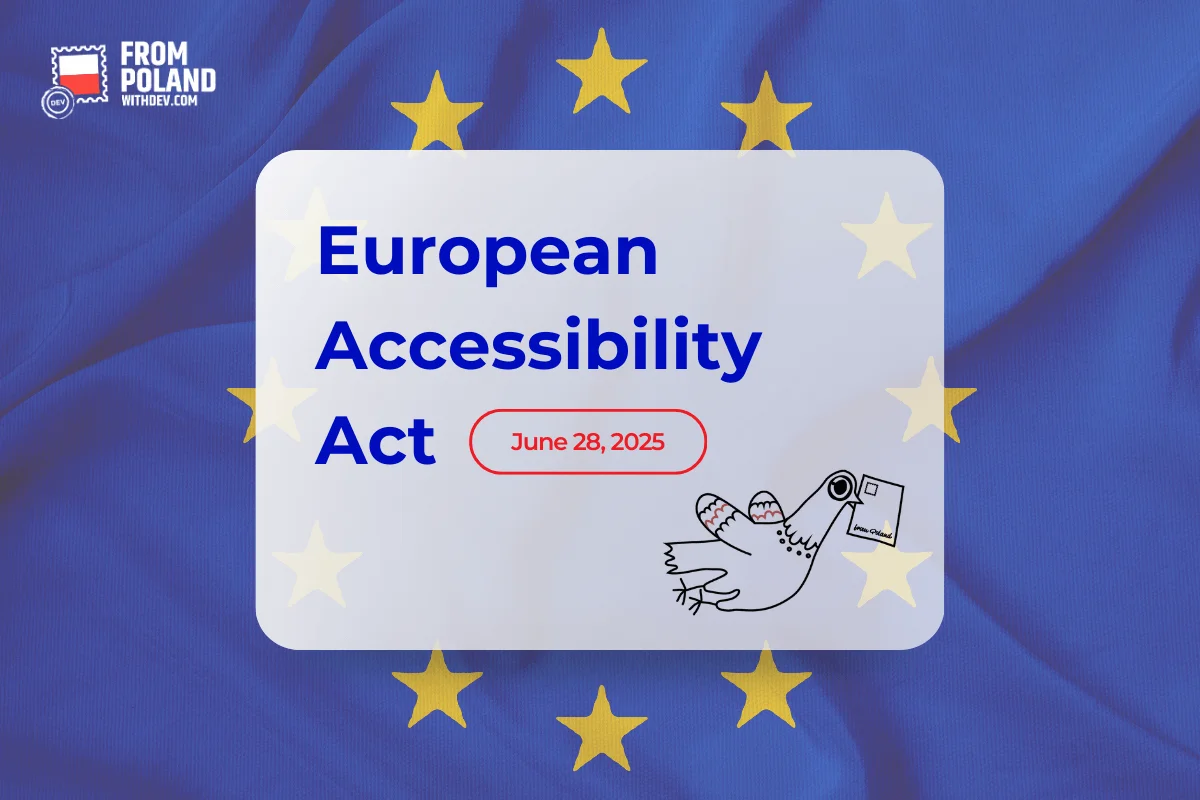
The European Accessibility Act (EAA) aims to improve the accessibility of digital products and services, especially for people with disabilities. By June 28, 2025, businesses must ensure their websites, apps, and physical products meet accessibility standards. This isn’t just about compliance – it’s an opportunity to reach more customers, improve user experience, and future-proof your business.
The European Accessibility Act (EAA) is a big step towards digital accessibility in the EU.
It aims to remove barriers for people with disabilities and harmonize accessibility regulations across the European Union.
Its enforcement is set for June 28, 2025.
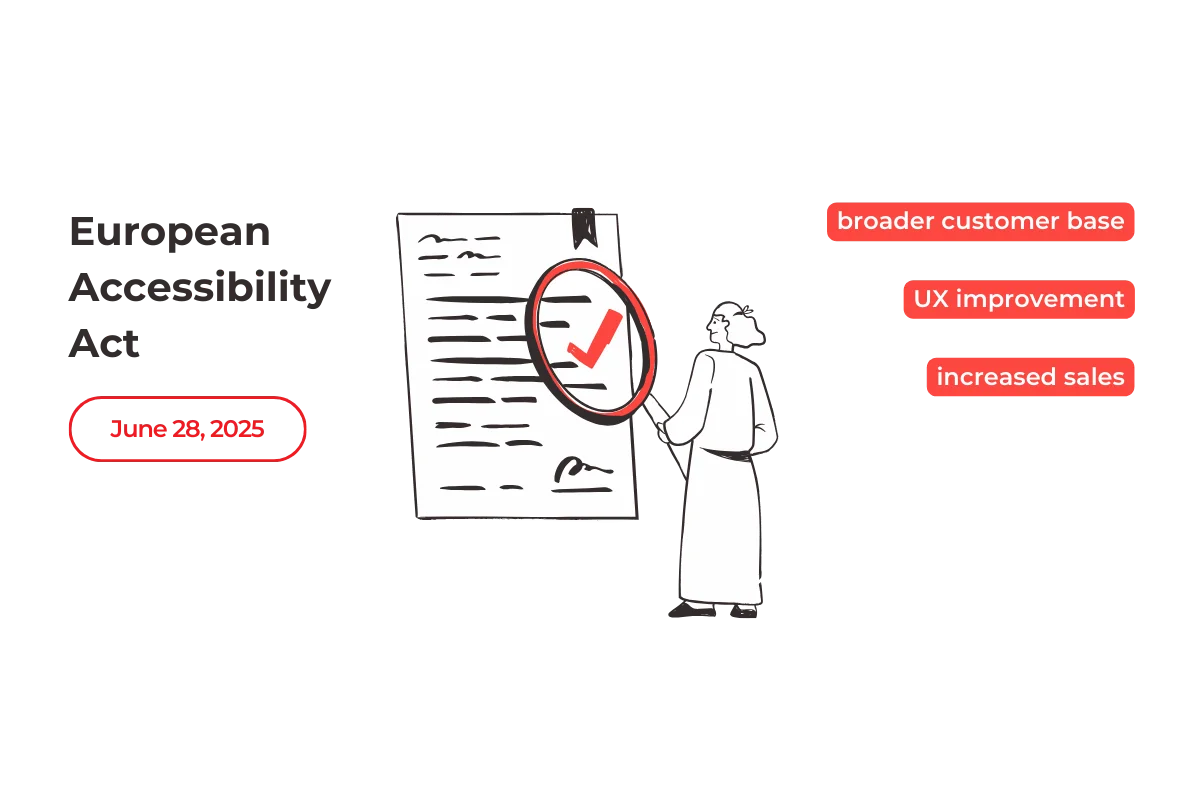
Businesses and public institutions will have to align their products and services with new accessibility standards, including web accessibility.
For EU businesses, this means ensuring their digital and physical products meet EAA standards.
US companies selling to the EU will need to comply with the EAA to continue operating successfully within the EU market.
However, this also means opening doors to a broader customer base thanks to accessible products and services.
It aims to remove barriers for people with disabilities and harmonize accessibility regulations across the European Union.
By meeting these standards, businesses can expand their reach, improve user experience, and increase sales.
Removing accessibility issues means your business will be able to reach more diverse customers.
What exactly does this mean for websites and mobile, digital services, and IT companies?
EAA 2025 applies to a broad range of products and services that impact everyday life.
Businesses must ensure compliance, or risk substantial penalties.
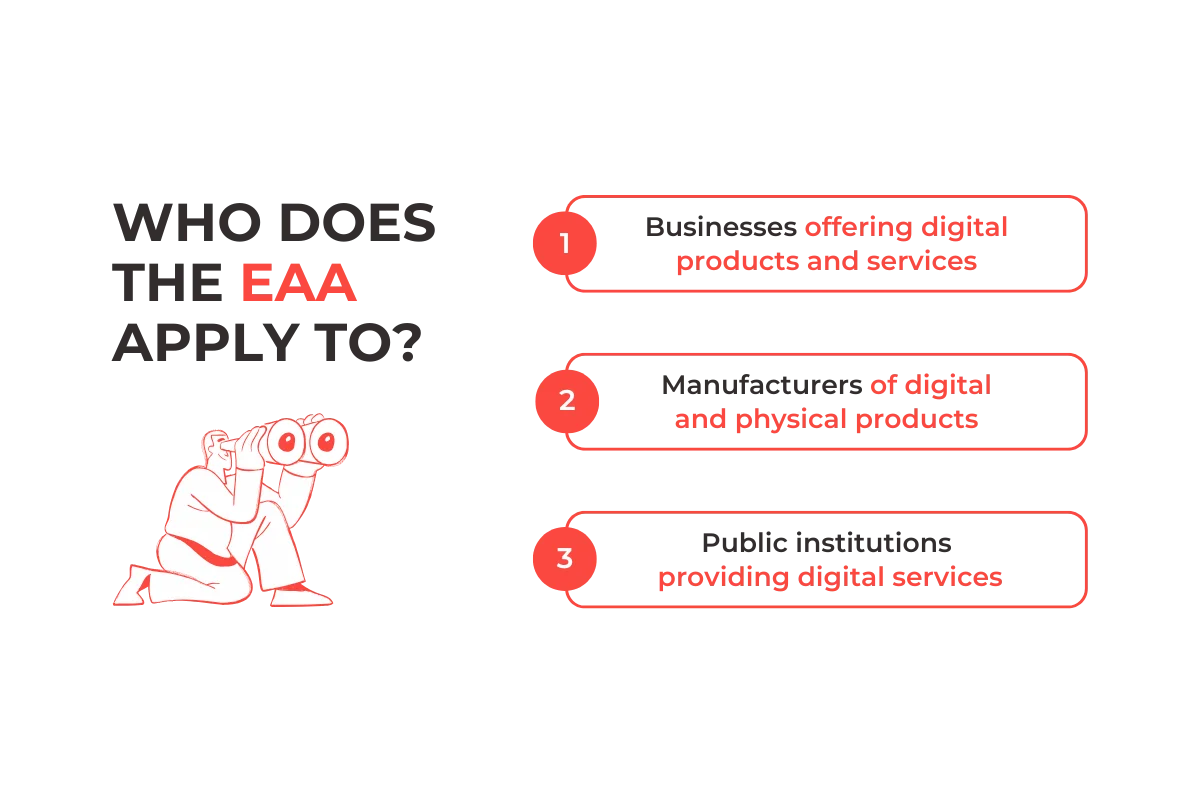
Businesses must ensure compliance, or risk substantial penalties.
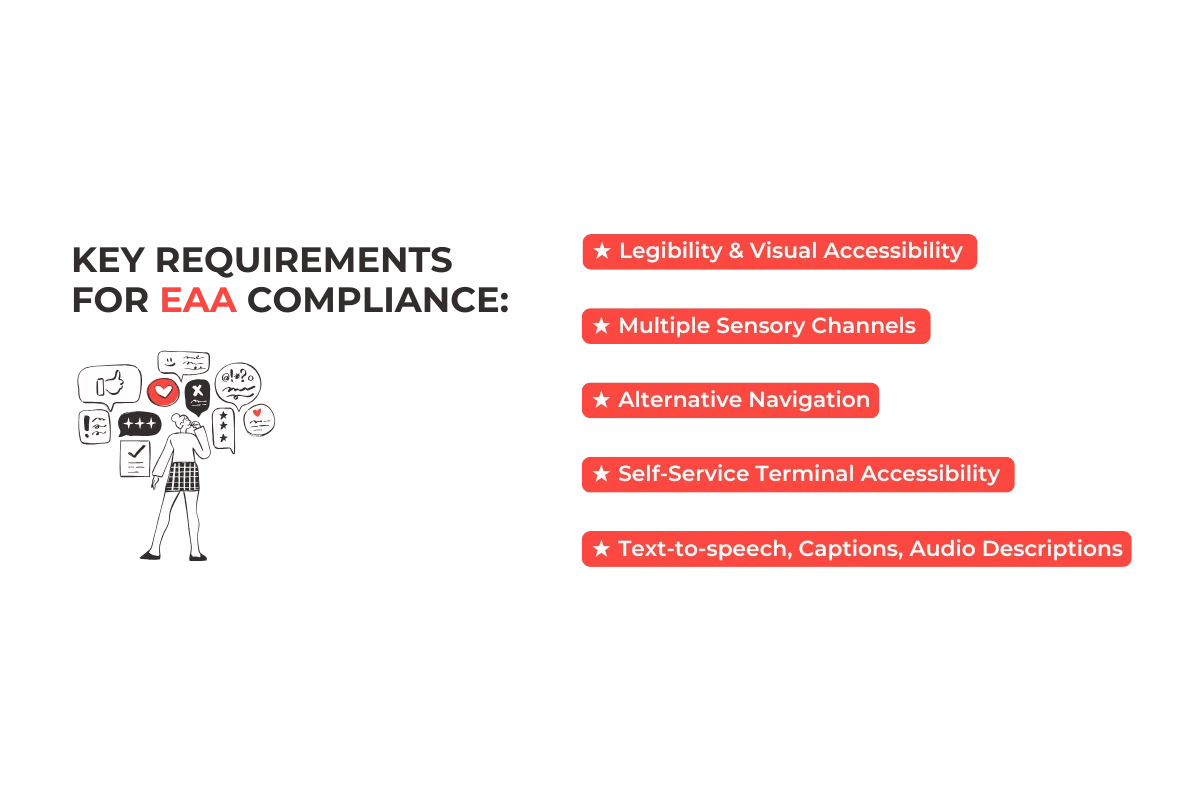
The EAA mandates compliance with the Web Content Accessibility Guidelines (WCAG) 2.1.
Websites must be:
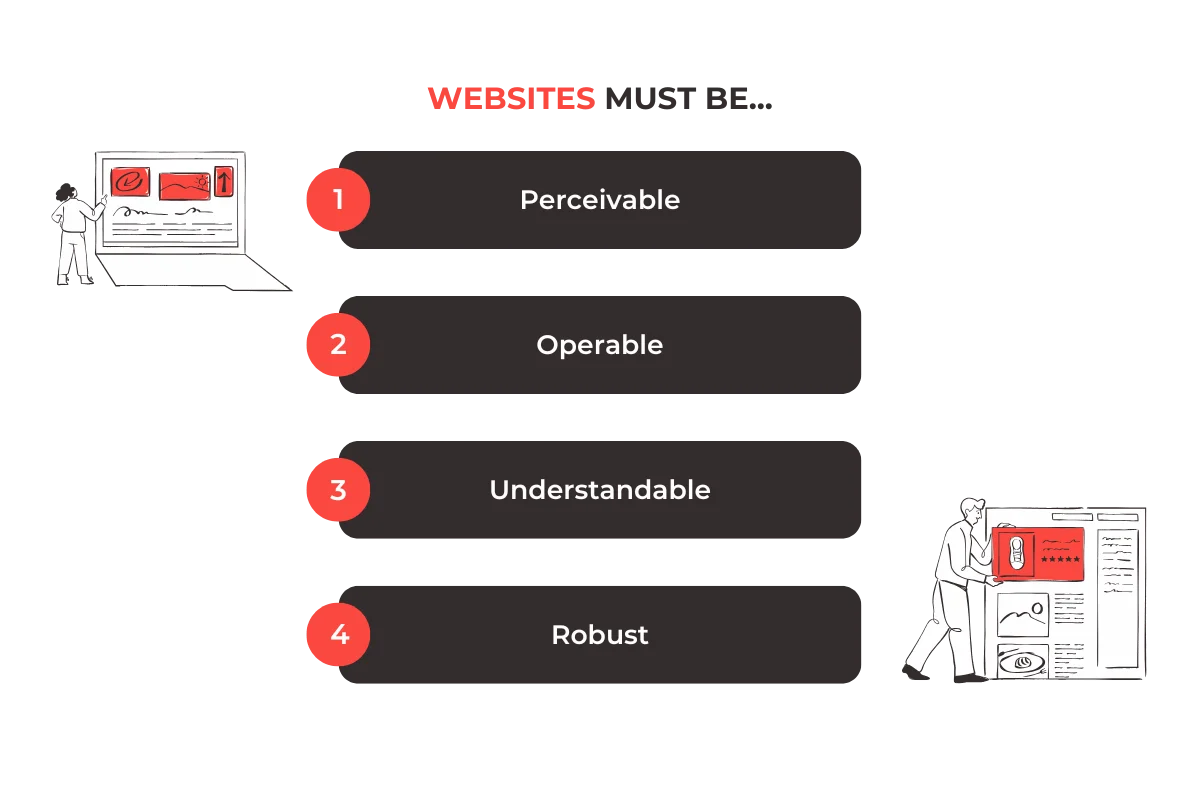
The European Accessibility Act 2025 is not just about compliance – it’s about ensuring inclusivity for millions of users.
The EAA mandates that businesses comply with accessibility standards, and the European standard EN 301 549 provides specific technical requirements. This standard aligns with WCAG 2.1 and serves as the benchmark for ICT (Information and Communication Technology Accessibility) accessibility in the EU.
If a company meets EN 301 549 requirements, it is likely compliant with the EAA as well.
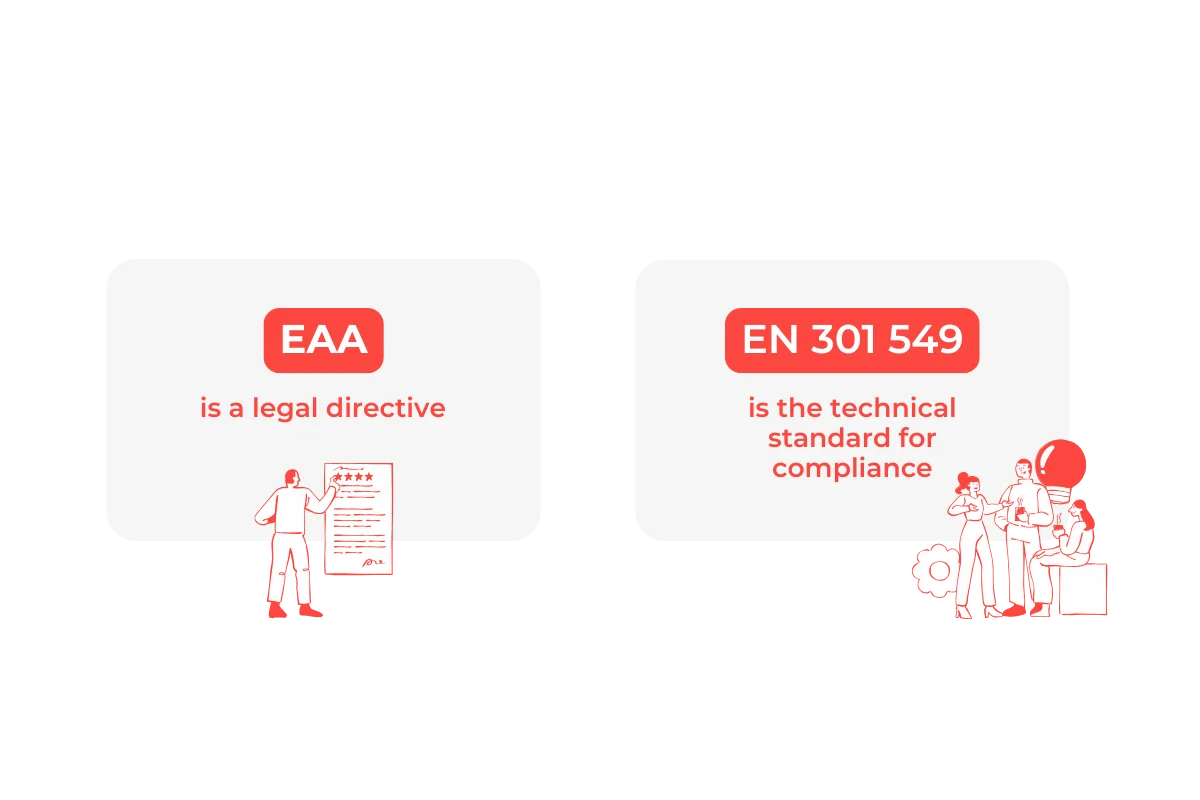
Penalties for non-compliance vary by member state.
In some cases, fines can range from €5,000 to €20,000 per violation.
Companies may also face restrictions on selling their products within the EU until they meet compliance requirements.
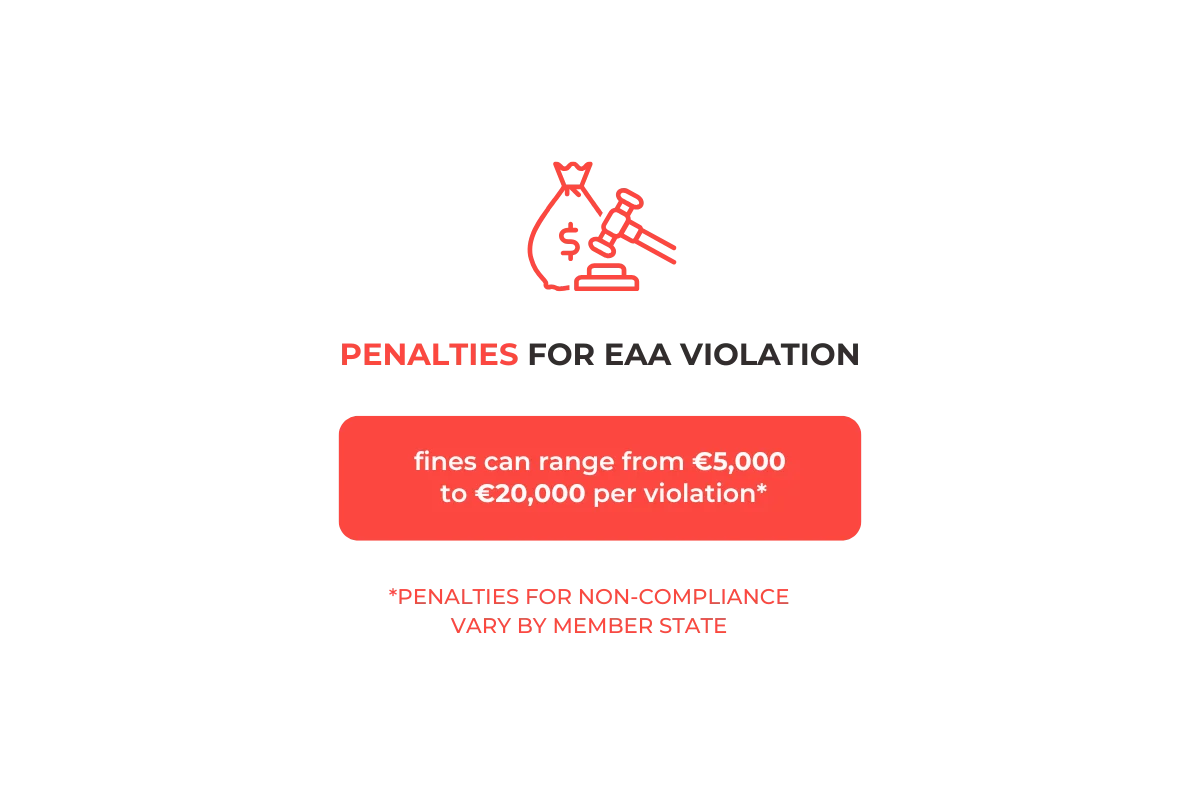
Businesses that invest in accessibility improvements will benefit from broader customer reach, improved user experiences, and a stronger reputation in the digital market.
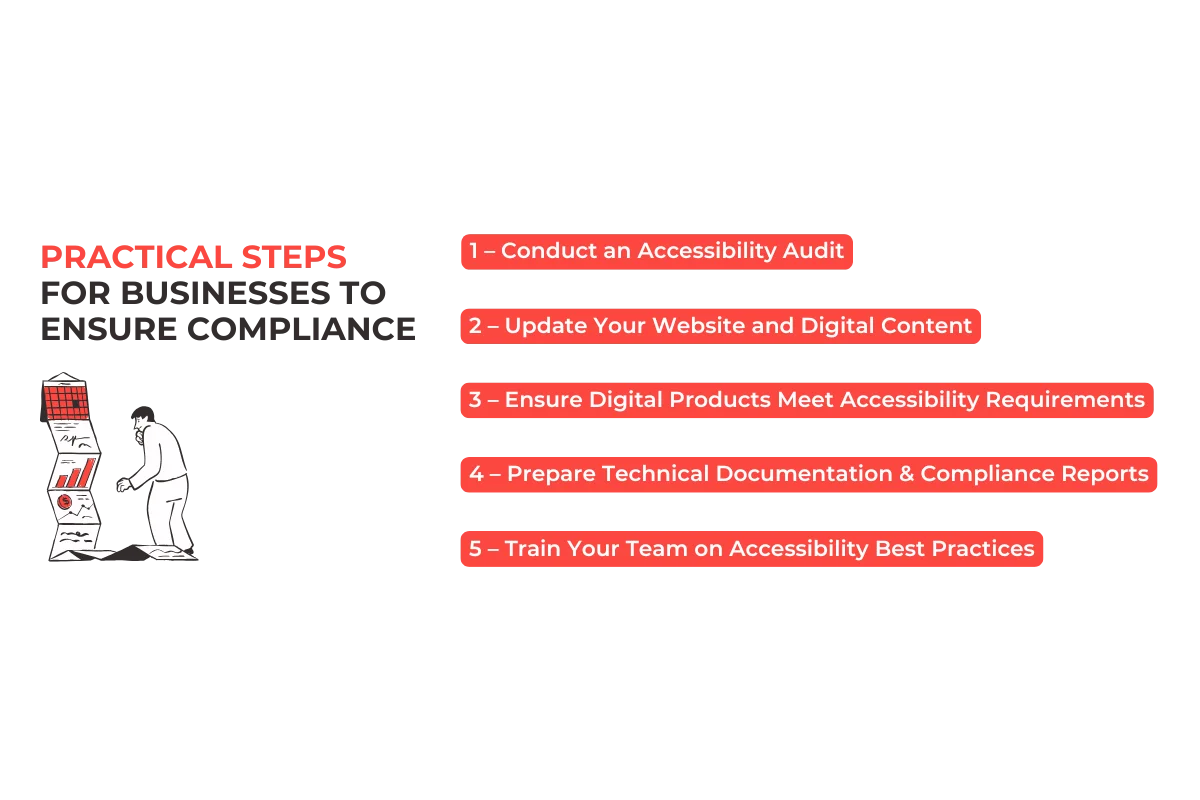
The European Accessibility Act 2025 is not just about compliance – it’s about ensuring inclusivity for millions of users.
Businesses that invest in accessibility improvements will benefit from broader customer reach, improved user experiences, and a stronger reputation in the digital market.
For IT companies, website developers, and e-commerce platforms, this is the time to act.
Conducting audits, aligning with WCAG 2.1, and preparing documentation will ensure your business remains competitive and compliant before the June 2025 deadline.
By taking accessibility seriously, companies will not only avoid penalties but also create a more inclusive digital landscape – a win for both business and society.
Need expert help with your website or ecommerce?
Disclaimer: This article provides general information about the European Accessibility Act (EAA) and is intended for awareness purposes only. It is not exhaustive and does not constitute legal advice. Requirements, implementation timelines, and penalties may vary by EU member state and individual business circumstances. For comprehensive guidance specific to your situation, we recommend consulting with legal specialists or accessibility experts. While we strive for accuracy, regulations may change, and businesses should verify current requirements with official EU sources.
Blog